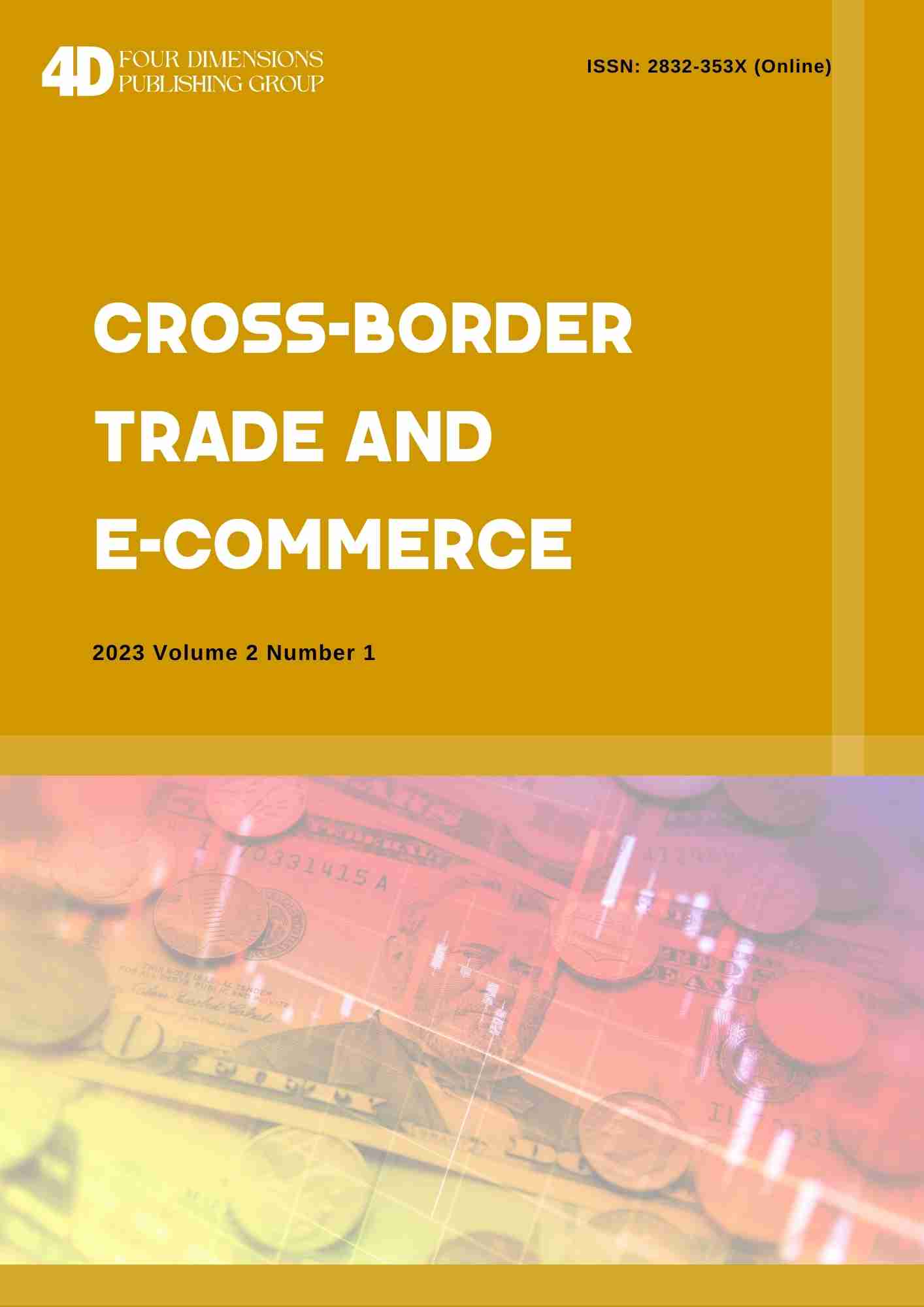
Cross-Border Trade and E-commerceOpen Access
Cross-Border Trade and E-commerce is an international peer-reviewed journal that publishes original and high-quality research papers in all related areas. All papers published will be open access to all readers. To build a platform for scientific research and academic exchange for scholars, focusing on the development and research, introducing worldwide research, theory and practice, and promoting international exchanges.
ISSN: N/A (Print)
Frequency: Bimonthly
ISSN: 2832-353X (Online)
Website: https://doi.org/10.55571/cte
Email: cte@4dpublishinggroup.com
Indexing and Abstracting: Google Scholar; CrossRef; ResearchBib; WorldCat; CiteFactor
Email: cte@4dpublishinggroup.com
Indexing and Abstracting: Google Scholar; CrossRef; ResearchBib; WorldCat; CiteFactor
The Effect of Wearable and Tearable Climate and Weather on Wearable Technology
DOI:
Authors:Vijayan Gurumurthy Iyer
Affiliation:
Techno-Economic-Environmental Study and Check Consultancy Services, Proprietorship Business
Bihar Institute of Public Administration & Rural Development (BIPARD), Kushdihra, Gaya-823001, Bihar
https://orcid.org/0000-0003-2443-6573
Information:Received: February 5, 2024 / Accepted: February 15, 2024 / Published: February 25, 2024
Authors:Vijayan Gurumurthy Iyer
Affiliation:
Techno-Economic-Environmental Study and Check Consultancy Services, Proprietorship Business
Bihar Institute of Public Administration & Rural Development (BIPARD), Kushdihra, Gaya-823001, Bihar
https://orcid.org/0000-0003-2443-6573
Information:Received: February 5, 2024 / Accepted: February 15, 2024 / Published: February 25, 2024
Abstract:This article discusses the effect of wearable tearable climate and weather on wearable technology. Climate change refers to long term shifts in temperature and weather patterns, mainly caused by human activities, especially the burning of fossil fuels and unsustainable infrastructural development. Strategic environmental assessment (SEA) process can be broadly defined as a study of the impacts of a proposed project, plan, project, policy, or legislative action on the environment and sustainability. The significance of the work entitled “Sustainable Wearable Climate and Weather Management” is mainly confirmatory as it solves environmental and social problems. In this research, the SEA process has been aimed to incorporate environmental and sustainability factors into wearable climate and weather management includes climate change and control as an example like production and manufacturing process project planning and decision-making processes such as project formulation and appraisal of wearable climate and weather projects like wear and tear of dust-producing grinding chrome composite leather clad rollers and washers commonly used in seed-cotton Indian roller ginning machines, wastewater treatment process, rotating biological contactors, trickling filter bed, biomedical parts, marine biopolymers, Indo-Matsushita midget electrode (battery carbon rod) plant in 1979 at Tada, sustainable bridge, road, and sanitation structure, green building, nuclear power plant, cotton roller ginning plant and concrete that included policies, programs, plans, and legislative actions. Sustainable materials for manufacturing process development is a kind of development that meets the needs of the present without compromising the ability and efficacy of future generations to meet their own needs. Environmental Impact Assessment (EIA) process can be defined as the systematic study of the potential impacts (effects) of proposed projects, plans, programs, policies, or legislative actions relative to the physical-chemical, biological, bio-medical, cultural, and socioeconomic components of the total environmental product life cycle. The primary purpose of the EIA process is to encourage the consideration of the environment in the Organizational ’s wearable and tearable climate and weather management project planning and decision-making process and to arrive at environmentally compatible actions. The sustainable wearable climate and weather management process should include the integrated consideration of technical or engineering, economic, environmental, safety, and health, social, and sustainability factors to achieve business excellence as per post COVID-19 World Scenario. Before the National Environmental Policy Act (NEPA) process in 1970 in the USA, technical and economic factors dominance the World’s manufacturing process projects. The objective of the study is to conceptualize a training course module incorporating the SEA process for the Sustainable Environmental Wearable and Tearable Climate Change and Weather Control for the officers of Bihar Institute Public Administration and Rural Development (BIPARD), Patna, Bihar, India during the Research Year (RY) 2023-2024. The design of the study is cross-sectional. The limitation or recommendation of the study and check is to apply strategic environmental assessment process for sustainable environmental climate change and control towards sustainable development.
Keywords:Climate change; Environment; Health; Tearable; Weather; Wearable
Cite This Article:Iyer V. G.. The Effect of Wearable and Tearable Climate and Weather on Wearable Technology. Cross-Border Trade and E-commerce. 2024, 3(1): 1-12. https://doi.org/10.55571/cte.2024065
Keywords:Climate change; Environment; Health; Tearable; Weather; Wearable
Cite This Article:Iyer V. G.. The Effect of Wearable and Tearable Climate and Weather on Wearable Technology. Cross-Border Trade and E-commerce. 2024, 3(1): 1-12. https://doi.org/10.55571/cte.2024065
